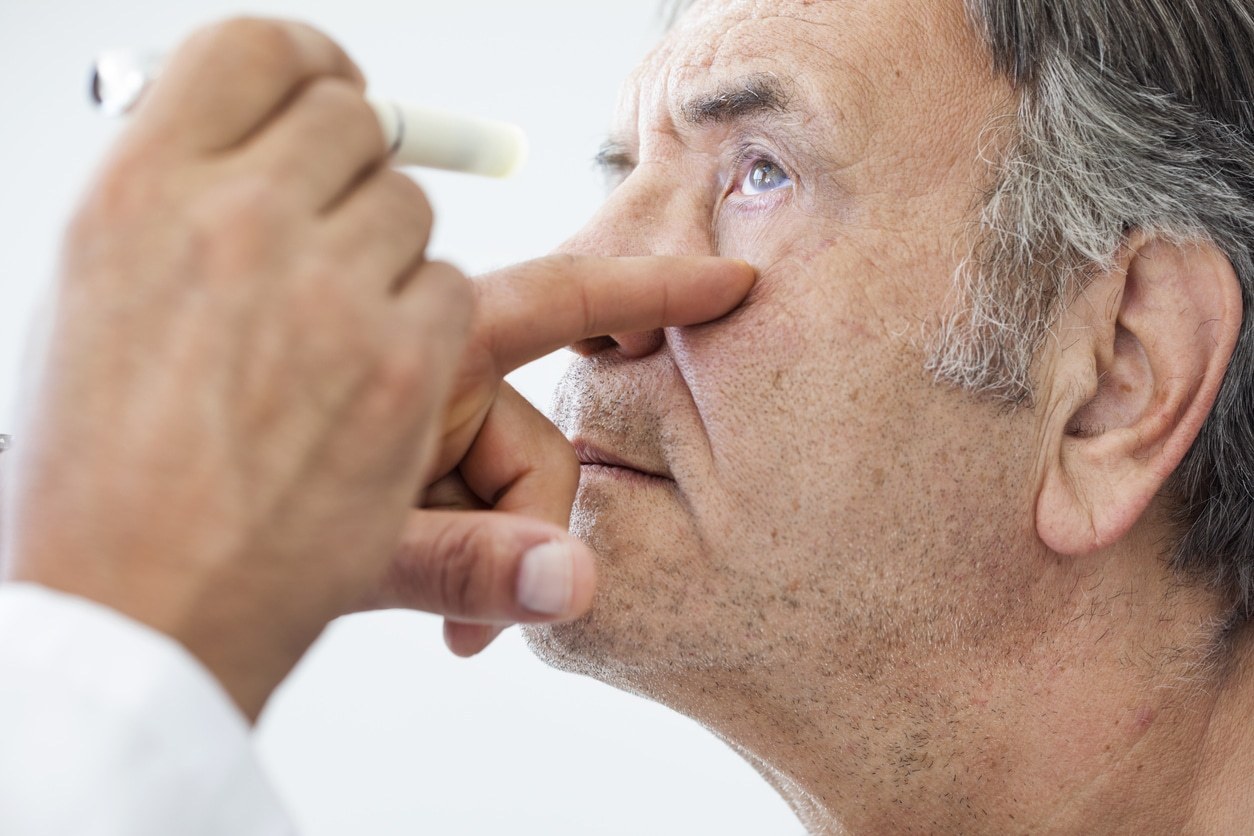Paraquat Lawsuit - Paraquat Pesticide Linked to Parkinson's Disease
Research has shown that exposure to pesticides, namely a grass and weed killer known as paraquat, is a significant risk factor for the development of Parkinson’s disease among farmers, agricultural workers, chemical mixers, and even residents of rural areas near farms and other areas where pesticides are sprayed. Concerns about the extremely toxic nature of paraquat (taking just one sip of paraquat can be fatal) has resulted in the herbicide being banned in more than 30 countries.
Unfortunately, paraquat is still available for use in the United States, where millions of pounds of the toxic weed killer are applied annually. In fact, the global use of paraquat and other toxic herbicides in agriculture and manufacturing is so ubiquitous that Bastiaan Bloem, MD, a leading Dutch neurologist, predicts that the number of people with Parkinson’s disease will double over the next 20 years. If you or someone you love has been diagnosed with Parkinson’s disease and you believe paraquat exposure to be the cause, contact an experienced paraquat exposure attorney as soon as possible to find out whether you are eligible to file a legal claim.
What is Paraquat?
Paraquat dichloride (“paraquat”) is a highly toxic chemical widely used across the United States as an herbicide, mainly for the purpose of controlling invasive weeds and grasses.
Paraquat was brought to market nearly 60 years ago and products that contain paraquat as an active ingredient are currently sold under a variety of brand names, including Blanco, Firestorm, Devour, Parazone, Bonfire Herbicide, and Gramoxone.
Due to growing concerns about paraquat toxicity, paraquat has been classified as a restricted use pesticide, meaning it can only be mixed, loaded, applied, and handled by certified commercial or private applicators who have completed paraquat-specific safety training. Even with these restrictions in place, however, there remains a potential risk of serious side effects occurring among those routinely exposed to paraquat, including farmers and farm workers, herbicide applicators, chemical mixers, and tank fillers, as well as people who live near fields where paraquat is used to control weed and grass growth.

Potential Side Effects of Paraquat Exposure
"A great deal more attention has been paid to the adverse human health effects of widespread pesticide use recently, thanks in part to the thousands of lawsuits that have been filed against the makers of another widely used weed killer called Roundup (glyphosate), which has been linked to non-Hodgkin’s lymphoma."
Potential Side Effects of Paraquat Exposure
Research studies conducted over the past several decades have established a strong association between prolonged exposure to paraquat and the development of Parkinson’s disease, a progressive neurodegenerative disorder affecting the central nervous system. In people with Parkinson’s disease, nerve cell damage in the brain causes a drop in dopamine levels, which leads to symptoms like stiffness, tremors, slowed movement, and impaired posture and balance.
Recent research has shown that paraquat can destroy these same dopamine-producing neurons in the brain, the loss of which is a key factor in the progression of Parkinson’s disease. In 2017, the journal Nature Chemical Biology published a study suggesting that paraquat causes cell death via a phenomenon called oxidative stress, which is an imbalance between the production of oxygen reactive species (free radicals) and the body’s ability to repair their harmful effects. In humans, oxidative stress is believed to be involved in the development of Parkinson’s disease and other diseases. In another study conducted by the National Institute of Health in July 2011, researchers found that farmers who use paraquat have a 2.5-times (250%) greater risk of developing Parkinson’s disease.
There is also evidence of a possible Parkinson’s risk among people who live near farmland and other areas where paraquat is sprayed and are thus exposed to paraquat present in the environment. In one study published in the journal Toxicological Sciences in December 2020, researchers found that repeated exposure to low levels of paraquat in the air may allow the pesticide to enter the brain and accumulate there, where it can cause olfactory impairment, an early sign of Parkinson’s disease. “Inhalation can provide a direct route of entry to the brain,” says Timothy Anderson, a graduate student and lead author of the paraquat study. “If you inhale something and it goes into your nose, it can actually enter the neurons responsible for sense of smell, and travel into the brain.” The researchers concluded that their findings “support the need for establishing protective regulations for applying neurotoxic pesticides, such as [paraquat], in order to protect public health.”
Lawsuits Alleging Parkinson’s Disease from Paraquat
The use of weed killers in the U.S. is controversial. For decades, paraquat has been sprayed on soybean fields and other crops across the country – even more so recently with the emergence of glyphosate-resistant weeds – with little regard for the possible impact of paraquat use on human health. In 2016, the U.S. Environmental Protection Agency announced that it would investigate the possible human health risks of paraquat exposure, the final results of which are expected to be released in 2022. In the meantime, workers and other individuals who were exposed to paraquat and were subsequently diagnosed with Parkinson’s disease are pursuing paraquat lawsuits against the makers of paraquat-based weed killers like Gramoxone, Blanco, Devour and Parazone. The paraquat lawsuits allege, among other things, that the herbicide manufacturers failed to: adequately research the potential link between paraquat and Parkinson’s disease; warn consumers about the risk of Parkinson’s disease from paraquat exposure; or ensure that paraquat applicators, mixers, and loaders received adequate protective equipment to minimize their risk of harmful paraquat exposure.
Were you or a loved one diagnosed with Parkinson’s Disease after exposure to the pesticide Paraquat?
You may qualify for compensation.
Find Out MoreConsumer Safety Watch offers safety advocate services and attorney referral services for patients throughout the United States including the states of Alabama, Alaska, Arizona, Arkansas, California, Colorado, Connecticut, Delaware, Florida, Georgia, Hawaii, Idaho, Illinois, Indiana, Iowa, Kansas, Kentucky, Louisiana, Maine, Maryland, Massachusetts, Michigan, Minnesota, Mississippi, Missouri, Montana, Nebraska, Nevada, New Hampshire, New Jersey, New Mexico, New York, North Carolina, North Dakota, Ohio, Oklahoma, Oregon, Pennsylvania, Rhode Island, South Carolina, South Dakota, Tennessee, Texas, Utah, Vermont, Virginia, Washington, West Virginia, Wisconsin and Wyoming.
Consumer Safety Watch offers consumer safety advocate services or can help you find an attorney throughout the United States including the following cities: Albuquerque, NM; Arlington, TX; Atlanta, GA; Austin, TX; Baltimore, MD; Boston, MA; Charlotte, NC; Chicago, IL; Cleveland, OH; Colorado Springs, CO; Columbus, OH; Dallas, TX; Denver, CO; Detroit, MI; Fresno, CA; Fort Worth, TX; Indianapolis, IN; Honolulu, HI; Houston, TX; Jacksonville, FL; Kansas City, KS; Kansas City, MO; Las Vegas, NV; Long Beach, CA; Los Angeles, CA; Louisville, KY; Memphis, TN; Mesa, AZ; Miami, FL; Miami, OH; Milwaukee, WI; Minneapolis, MN; Nashville, TN; New York City, NY; Oakland, CA; Oklahoma City, OK; Omaha, NE; Philadelphia, PA; Phoenix, AZ; Pittsburgh, PA; Portland, OR; Sacramento, CA; San Antonio, Tx; San Diego, CA; San Francisco, CA; San Jose, CA; Seattle, WA; St. Louis, MO; Tampa, FL; Tucson, AZ; Tulsa, Virginia Beach, VA; Washington, DC; Wichita, KS.
This website is not affiliated with any pharmaceutical or medical device company or any trademarked product. Results are not guaranteed. This website provides a free matching service and is not responsible for information or services from third party providers. Consumer Safety Watch is not a law firm. Every case is different and services available can vary.


